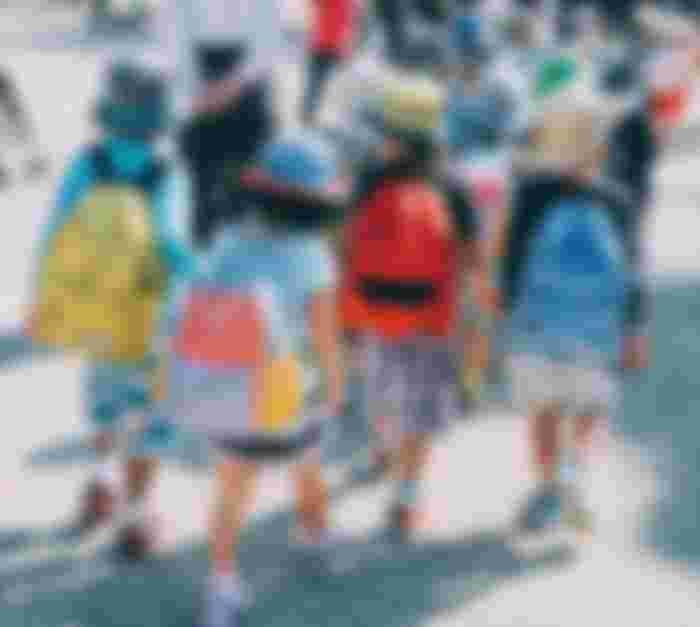A child's development.

Date: Monday, March 14th.
We all love the idea of having children in the near future. Even in our societies we have, either, witnessed from someone the news of a new born or directly, from within the family, been privileged to hold a baby in our arms as we feel their warmth, tenderness, and fragility. In more ways than one, the emotions that come after is usually filled with an undescribable affection towards them.
The birth of a new born baby is the start of a new life. It is without doubt that we find ourselves taking responsibility and caring for them between the developmental stage - Infancy, and Puberty. A strong emotional bond is automatically created between the child and a Parent, they tend to grow fond of the familiar faces around them as their brain develop.
There are different stages to child development. The stages includes:
Newborn
Infant
Toddler
Pre-School age and;
School age.
Newborn

This is the stage between the first few Months of birth. In this stage, babies learn about their surroundings. They learn to feel, move, touch, and sense their environment in a way exclusive to them. Some typical examples like:
Learning to hold things tightly in their hands - whether a thumb or, some random play object they come across with.
Smiling back at you for reasons you may not know about, but are somewhat adorable.
Babble incoherently
Waving their hands about and;
seemingly, tracking random faces and objects with their eyes.
Infant

This is the stage during the months of seven to nine. At this point, babies tend to do things a little differently than usual. Because of their familiarity with the usual environment - say, knowing, to an extent, the surroundings especially at home; they become more cheerful, mobile, and also are rather specific with the things they want.
For example:
They may start to react when their names are called.
Recognize and point at familiar objects.
Use words like, "Dada" constantly. But, in a very mumbled way.
Sit upright with little or no support.
Move around by dragging their bellies or legs, whilst patting their hands on the floor and,
Try to pull themselves up to a standing position.
Toddler

The last development stage between the months of nine and twelve after birth. In this period one may notice changes in the child's weight, sensibility, and their incessant eagerness to explore. It may become surprising at some point to see how much they've grown to do more for and by themselves, even if it is just slightly. They have outgrown the Stages of Newborn, and infants.
Here some of the likely things they must have picked up in such short period:
Feeding themselves. As a little surprising as this sounds, babies also do some feeding for themselves when you observe them closely. They master what is called the "pincer grasp" - like them holding little crumbs of cereals between their thumbs and forefinger.
Moving while holding on to furnitures.
They begin to play-act, like copying expressions shown on your face. This is their way of bonding and becoming familiar with the faces. (They tend to more of this, isn't that why they are so adorable? Smiles!).
Point at specific objects to get your attention.
Pre-School age

Babies eventually grow to the age where they start preschool. But, having to make decisions on when to put your child into one is very crucial. One important aspects to consider is to explore every option. Parents who has, one time, been through the decision of when to put their young kids into preschool likely has a sense of what route is best. Exposing them to the structure, social interaction, and learning activities of preschool may spur in them a love for learning, adventure and jumpstart a number of cognitive skills.
School Age

This is the stage a child is required to attend school. By the age of 5, most children are ready to start learning in a school setting. They start their quest to discovering abilities, developing skills and individuality. They become cognizant with the use of simple, complete sentences usually containing five to six words. Through their time in elementary school their grammar and pronunciation become normal. They learn to make friends and surround themselves with playmates.
Children also develop interests in various activities. So, it is important to encourage them to engage in constructive activities such as sports, club, Art, and Music. At the same time, finding a balance between family time, school work, free play, and structured activities help a child set his priorities right.
Conclusion
Children are especially sensitive considering their inability to separate what is right from wrong. There's a need to carefully train up a child. Sure, we observe, and nurture them in their early years after child birth. It is just as essential we do our best to do the same even when they reach adolescent.
Thank you for reading.
Until next time.






Surprisingly, as we grow old we tend to return to the infancy stage again. Imagine going back to a wheel chair due to the inability to walk, the inability to speak properly sets in and we basically would require assistance to do everything once more at old age. It's almost like we're going back to the infancy stage once again.
In the end, life is nothing but a cycle of unending nothingness.. Live, die, repeat..